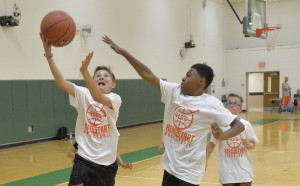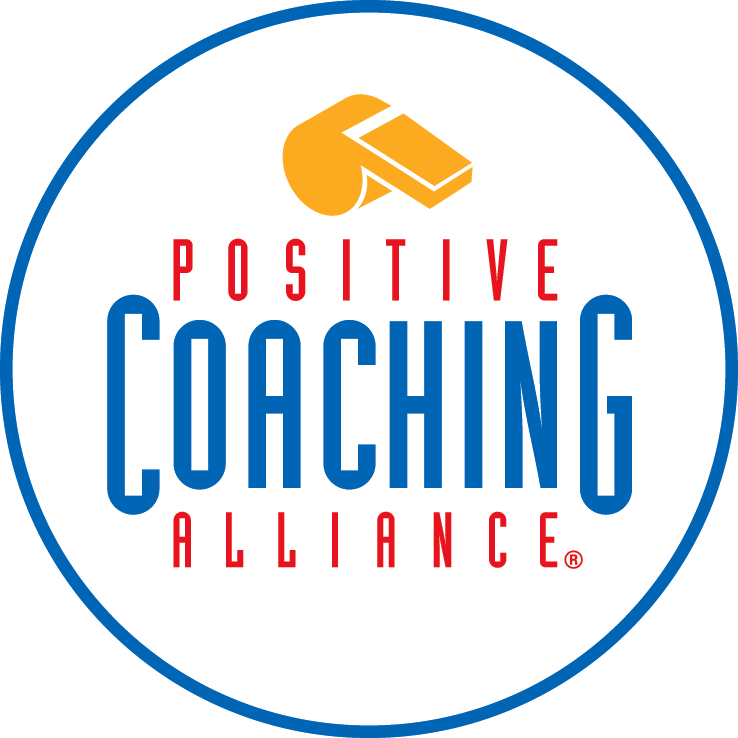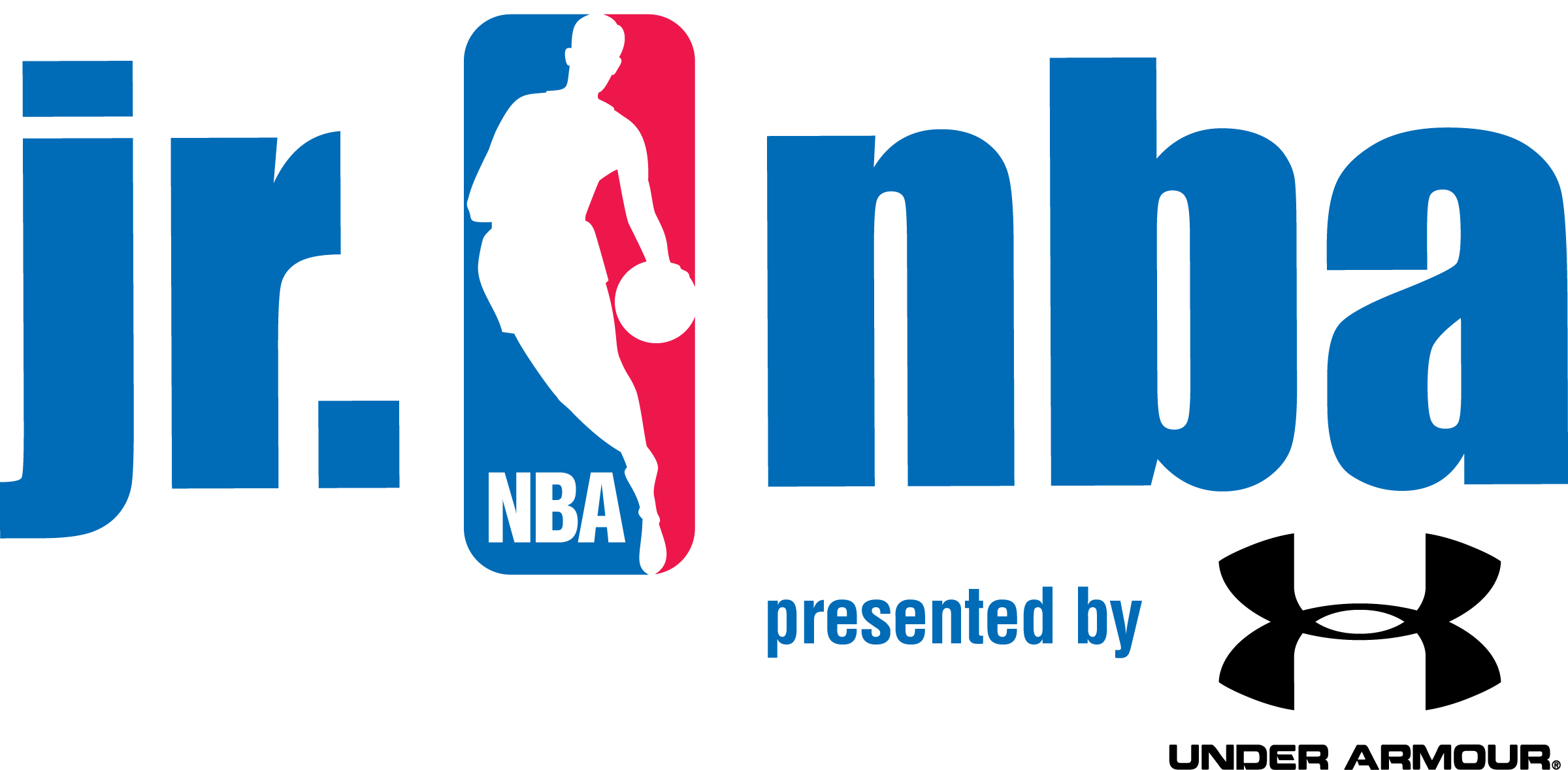
Basketball on the Edge – Do Our Kids Play Too Many Games? – Vintage Edition

Youth basketball today has shifted its focus from player development and skill building towards a model that emphasizes 5 on 5 full court games from a very early age. Young players spend relatively little time training or getting involved in unstructured short squad “pick-up” play compared to players of past generations. Today, kids as young as second grade start playing on travel and AAU teams. Typically these teams may practice once a week and then play 4 or 5 games in a weekend. The overemphasis on playing and winning 5 on 5 full court games leads to many problems regarding the development of young players.
This is the complete opposite of the ideal player development balance. Young players should be training and practicing far more often than they play in a 5 on 5 game. Instead, they spend about one hour at practice a week and then play several hours of 5 on 5 games. That ratio should be reversed. Young players should be practicing more both with their team and on their own including playing more short squad pick-up games that give them the opportunity to get more touches of the ball and play against players of different ages. Not only should they be practicing basketball more than playing it, they should also be involved in other sports. Until they hit puberty, specialization in basketball shouldn’t even be considered.
Here are some problems that result from the overemphasis on full court 5 on 5 games for young players.
1. Fundamental skill development is sacrificed.
Young players first need to develop the skills necessary to be successful in a 5 on 5 game before they are thrown out on the court to compete. Youth coaches are so often focused on winning that players are typecast into positions and never train to become complete players. The “tall” kid who never grows after 6th grade and has only stood on the block for his entire basketball career needs an opportunity to become an all around player. The ratio of games to practices is about 6 to 1 right now. That should be reversed to properly develop our young players.
Here is a quote from Kobe Bryant talking about how growing up in Europe helped him develop his basketball skill set. “I was lucky to grow up in Italy at a time when basketball in America was getting messed up with AAU shuffling players through on strength and athleticism. I missed all that, and instead I was taught extreme fundamentals: footwork, footwork, footwork, how to create space, how to handle the ball, how to protect the ball, how to shoot the ball.” Obviously Kobe is strong and athletic too, but he developed great fundamentals at a young age. That is hard to do if all a young player does is play 5 on 5.
Kids simply don’t get enough touches in a 5 on 5 game to improve dramatically. During the course of the game a player who is not the primary ballhandler may have the ball for less than a minute. How much better can you get in that short period of time? Not much. More short squad 2 on 2 or 3 on 3 games give players more touches under game conditions. Kids don’t play enough pick-up basketball anymore so sometimes we as parents and coaches need to provide time for that type of unstructured play in our practices.
2. Too many games lead to overuse injuries and burnout.
There is mounting evidence that specializing in one sport at a young age can lead to injury and burnout. Learning proper fundamentals and how to train can reduce the frequency and severity of injuries. The opportunity to learn is reduced when players are only playing 5 on 5 games.
“There are lots of forces here, and not a lot of hard statistics on it,’’ said Dr. Mininder Kocher, associate director of the division of sports medicine at Boston Children’s Hospital. “Kids 12 and under, both boys and girls, are still in their growth stages. Their growth plates are still open. Their bone and soft tissue biomechanics are different than a 14- or 16-year-old. They’re also still developing neuromuscularly — balance, coordination.’’
Beyond the potential physical fallout of early specialization is the psychological and emotional toll on young athletes who feel pressured to perform at high levels, says Brooke de Lench, an advocate for youth sports reform.
“Parents are more intense, pushing kids more at an early age, than they were 15 years ago,” says de Lench. That’s when the Concord mother established the MomsTeam Institute, a watchdog resource for parents of “sports-active” children.
Allow, and in fact encourage, your young player to play multiple sports to develop their overall athleticism. Your child will be healthier and happier with their sport(s) in the long run.
3. Players don’t develop leadership and people skills.
Parents and coaches organize everything for kids in today’s world. Kids need more opportunities to pick teams, make their own rules, and then enforce those rules with each other. Some young players become leaders in these situations and get everyone on the same page. Kids learn to navigate and negotiate with other players. Was that a foul or not? You have to stand up for yourself or one of your opponents may try to take advantage of you. These skills don’t develop when adults set and enforce the rules. In sports and life you have to be able to make decisions, have confidence, and deal with lots of different people. Pick-up basketball helps young players incorporate those skills into their game and more importantly their life.
4. Playing with older players makes you better.
This is huge for me personally. I spent a ton of time growing up playing against older kids in my neighborhood. As I got to be 13 or 14 I went to the park and played against high school players, college kids, and adults. Those older kids and adults might not have been the best basketball players, but they were bigger, faster, and stronger than me. They didn’t want some kid scoring on them or stopping them on defense. I learned a lot of little subtleties of the game in those environments: how to protect the ball, how to use my entire body to defend, how to get my shot off quicker, how to play through contact and many more. As I got older, I never called fouls in pick-up games. I wanted to push myself to score despite the contact that would have other players calling “ball”.
Young players today mostly play against kids their own age. They never have to make the adjustments to playing with older kids and adults that I had to make. Find ways to help your young player get into pick-up games of any kind with older players. The experience they gain will be invaluable in their development as a complete player.
5. Nobody plays for hours at a time anymore.
Young players today play in a regulation 5 on 5 game and maybe play half to two thirds of the game. The game lasts about an hour or so and then they wait for their next game. I loved to play for hours at a time. My friends and I would play 1 on 1 to a hundred. I’d be the first guy at the park and the last to leave. I played when I was fresh and I played when I was exhausted. In an organized 5 on 5 game coaches control how many minutes kids play and as I said earlier nobody gets enough touches. The best way to improve is to have a ball in your hand. A one hour 5 on 5 game simply doesn’t provide enough opportunities to touch the ball and get better.
5 on 5 games can play a role in the growth of a young basketball player, especially if they have a good coach that is focused skill development rather than winning. However, practice/training time and short sided pick-up games should be emphasized over 5 on 5 play for those young players that have yet to reach puberty. How do we know who is going to be tall, fast, or strong at age 8 or 9? The answer is, we don’t. Therefore, as youth basketball parents and coaches it is our responsibility to flip the script and deemphasize playing and winning 5 on 5 games in favor of more skill development training and short squad pick-up games.


